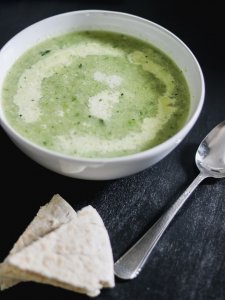Dr. Sonya Nobbe, ND
KFL&A Public Health reports that in 2013, 23% of the ticks brought in for testing were positive for B. Burgdorferi, the infectious agent of Lyme disease. Our region is considered high risk for Lyme disease. Additional infections carried by ticks (collectively known as Lyme co-infections), were not evaluated. Please educate yourself, friends, and family members about tick-bite prevention and treatment. I’ve thoroughly researched and summarized some guidelines to keep in mind this season:
1. Wear light-coloured, long-sleeved clothing with pants tucked into socks, when outdoors in tall grasses and wooded areas so that ticks are more visible.
2. A product containing 30% DEET is officially recommended for adults. For children younger than 12 years, Health Canada recommends using a product with 10% DEET. However, the repelling effects at this concentration may only last for 1 to 2 hours. Alternate approved chemicals for children or sensitive individuals include products with Icaridin (e.g. Avon Skin So Soft, some MEC and OFF! brand products).
3. Non-approved but well researched natural repellants include Lemon Eucalyptus oil (Eucalyptus citriodora), Labrador tea oil (Rhododendron tomentosum), Juniper (Juniperus virginia), and Marjoram (Origanum majorana). These can be mixed in a ratio of 12 parts pure grain alcohol (95% if available), to 1 part oil combination, and applied liberally with a dark glass spritzer bottle over clothing.
 Not only is your skin your largest organ, but it is metabolically active, which means that it works hard to protect you from harmful external influences. Your skin contains many of the same enzymes present in your liver for chemical detoxification, and it houses immune cells that ward off harmful (pathogenic) bacteria. Further, up to 65% of what you put on your skin may be absorbed into your bloodstream and lymph system. It’s important to choose your sunscreen carefully so that you can apply it liberally and often without concerns for your safety. Follow these quick tips to protect you and your family this summer:
Not only is your skin your largest organ, but it is metabolically active, which means that it works hard to protect you from harmful external influences. Your skin contains many of the same enzymes present in your liver for chemical detoxification, and it houses immune cells that ward off harmful (pathogenic) bacteria. Further, up to 65% of what you put on your skin may be absorbed into your bloodstream and lymph system. It’s important to choose your sunscreen carefully so that you can apply it liberally and often without concerns for your safety. Follow these quick tips to protect you and your family this summer:  Moving into winter, I find it challenging to eat enough veggies. Blended soups are a simple solution! They’re quite forgiving when you need to substitute ingredients or eyeball quantities. They freeze well (fill mason jars only 2/3 full to avoid breaking), and become a quick work lunch or dinner first course when you’re short of time. Better yet, they work well for families with food allergies, since they’re naturally free of dairy, gluten, egg, and nuts.
Moving into winter, I find it challenging to eat enough veggies. Blended soups are a simple solution! They’re quite forgiving when you need to substitute ingredients or eyeball quantities. They freeze well (fill mason jars only 2/3 full to avoid breaking), and become a quick work lunch or dinner first course when you’re short of time. Better yet, they work well for families with food allergies, since they’re naturally free of dairy, gluten, egg, and nuts.